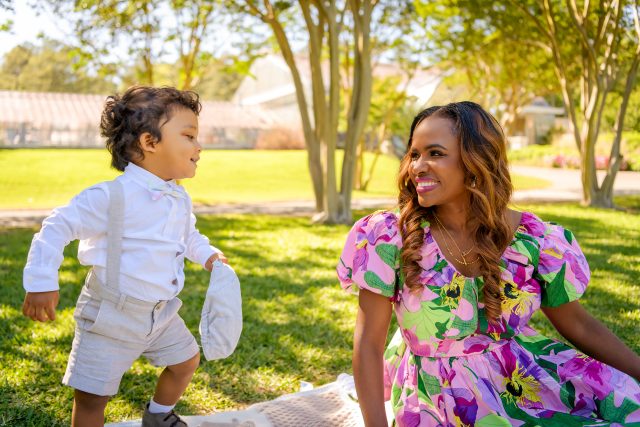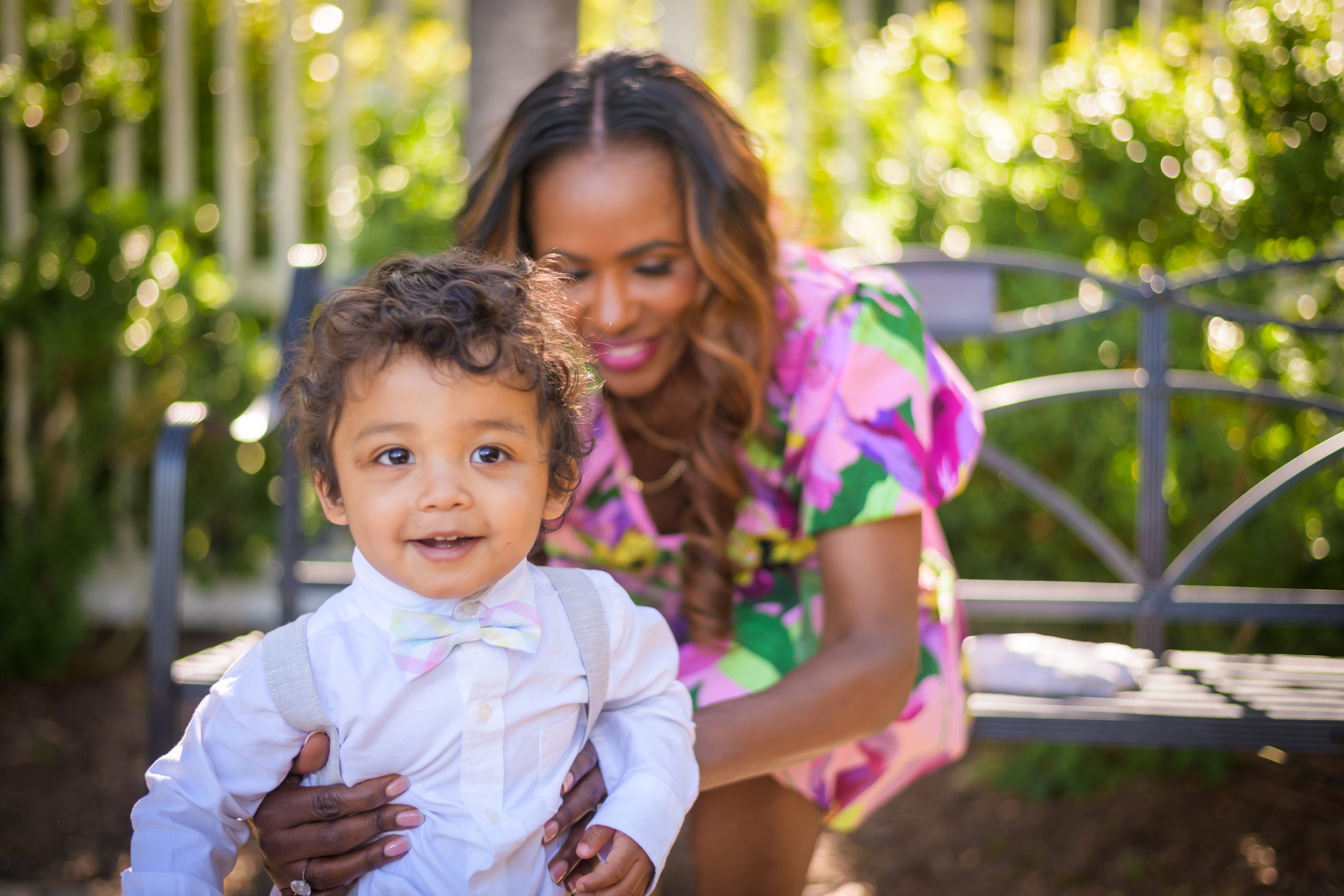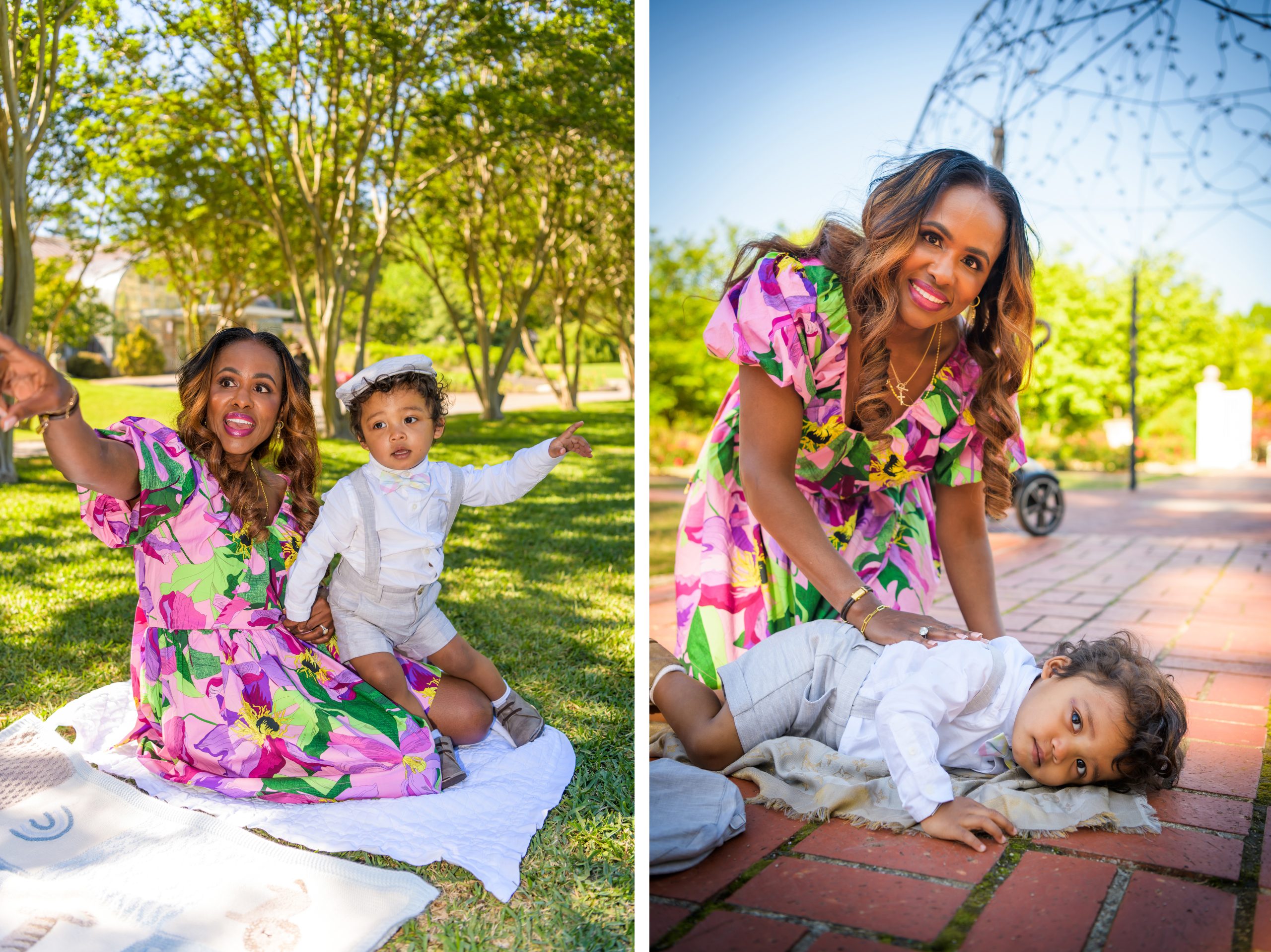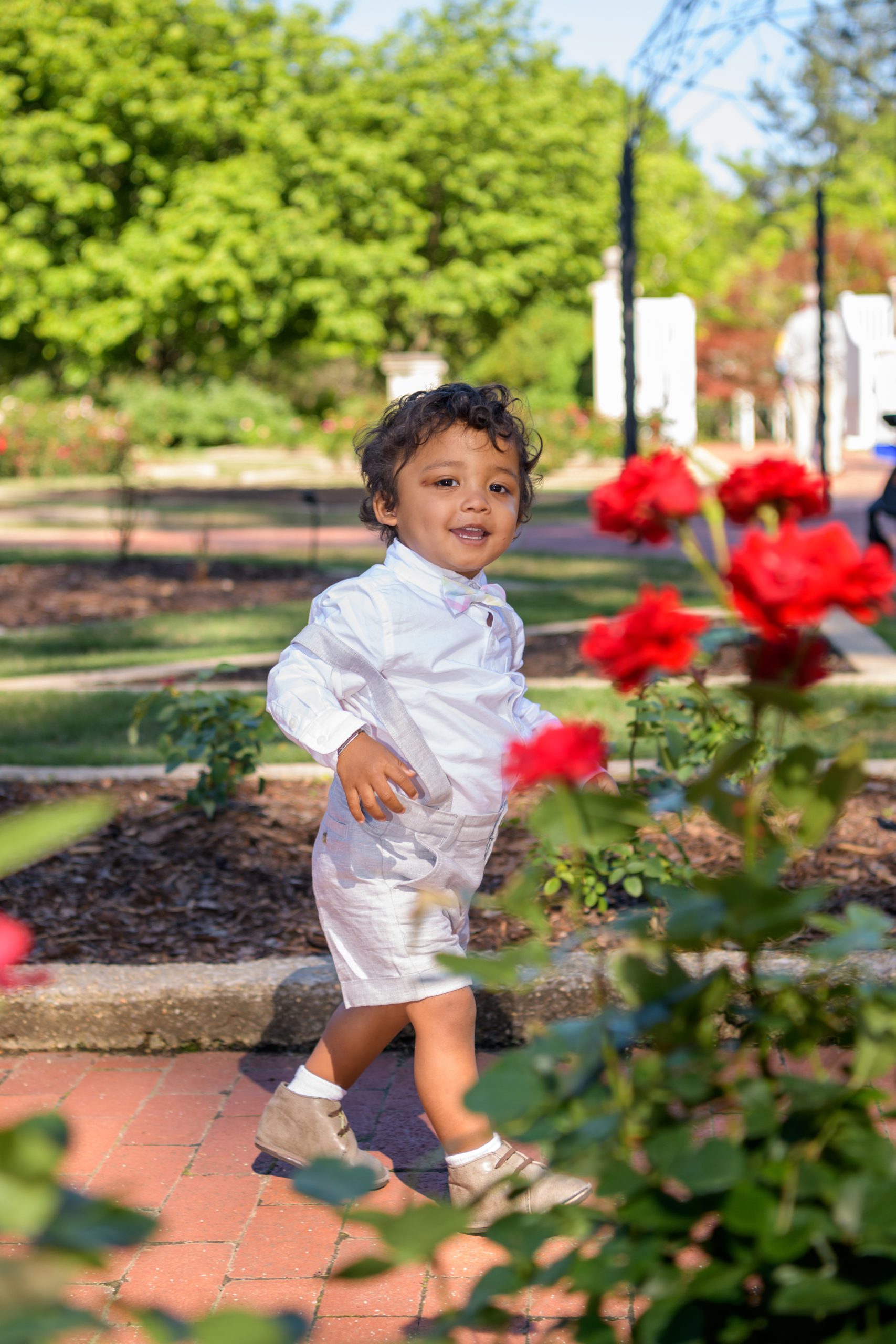
By Keisa Sharpe-Jefferson | The Birmingham Times
After building a successful Alabama construction company, earning a Juris Doctorate (J.D.) at the University of North Carolina at Chapel Hill, and being honored by more than a dozen local and national organizations, Birmingham business owner L’Tryce Slade considers becoming a first-time mom at age 45 one of her greatest accomplishments.
Slade is the owner of Slade Land Use, Environmental, and Transportation Planning LLC in Birmingham. Her son will turn 2 in June, and Slade, now at the age of 47, embraces motherhood every second she can.
As Mother’s Day—Sunday, May 12—approaches, Slade reflected on being a business owner in a male-dominated industry, finding work-life balance, and having a baby through in vitro fertilization (IVF).
One of the biggest challenges she faces is juggling it all, she told The Birmingham Times.
“I am trying to find work-life balance,” she said. “I am working toward building a village around me.”
Another challenge is simply leaning on others, said Slade: “I have experienced guilt when I feel like I have to ask someone to pick up [Baby Slade] in the evenings.”
There are only so many hours in a day, and parenting is a role that involves many adjustments. A typical day for Slade begins with going to work. Then she drops off her son at daycare and picks him up after work.
Having never been “a stay-at-home mom … [I make sure I] leave work by 5 p.m. in order to pick up my son on time. In the past, I could stay at my office as long as I needed,” said Slade, who established her construction company in her apartment in 2006.
“In the evenings, he wants my attention, so it is difficult to work on things I do not get done during the day,” she added.
Becoming a mother was a tough journey, said Slade, but having her child was such a joy, and she wants others who are thinking about it to have “the courage to keep pushing through.”

Dream Come True
For Slade, having her son through IVF was a dream come true.
During [IVF], mature eggs are collected from ovaries and fertilized by sperm [from a partner or donor] in a lab. Then a procedure is done to place one or more of the fertilized eggs, called embryos, in a uterus, which is where babies develop,” according to the Mayo Clinic and, hopefully, result in a successful pregnancy.
Slade said she never considered the process until she turned 35, after a conversation with her stylist during a salon visit. Her stylist said, “You know you’re getting a little older, and you may want to consider getting your egg reserves checked if you want to have children.”
“Apparently, she had gone through some fertility challenges, and so it began as a casual conversation with her,” Slade recalled. “My stylist is married, and she shared that she’d had a miscarriage and wanted a child. She asked me if I had ever heard of IVF or if I’d considered freezing my eggs? I had no clue what she was talking about.”
From that instant and conversation, the ideological seed was planted.
How It All Began
Slade’s research and search for a medical team for the IVF procedure led her to the University of Alabama at Birmingham (UAB), and in 2015 she was ready to begin the route of IVF. The medical procedure made headlines recently in Alabama when, in February, the state Supreme Court ruled that embryos created through IVF should be considered children.
During her IVF journey, Slade had two miscarriages; an embryo transfer and negative pregnancy, which likely means the implanted embryo did not reach the stage of development to attach to the womb (uterus); and another embryo transfer with a negative response. In addition, her IVF cycle was cancelled twice: once due to a follicle response (meaning the follicles in the ovary do not respond in a manner that is suitable for retrieving eggs) and another time due to fluid in her uterus.
According to the Mayo Clinic, “One full cycle of IVF takes about two to three weeks. Sometimes these steps are split into different parts and the process can take longer.”
She also had to undergo three hysteroscopy procedures, during which a hysteroscope (a thin, lighted tube) is inserted through the vagina and cervix so the doctor can see inside the uterus.
After having been through all of that, Slade said, “That’s why you would go get a surrogate. … You go get a surrogate when you’ve been through a lot of things, and that’s your last option.”
Her medical team suggested that she look for another option outside of carrying her own child.

Beating the Odds
During the process of seeking a surrogate mother, which she began in 2018, Slade lost her mother in 2020. After taking time off to work through that life event, she eventually chose a surrogate in the same year.
The next steps would involve Slade’s remaining fertilized eggs being implanted into another woman’s body. The chosen surrogate stood out because she was married, vegan, and had two children of her own, Slade said.
“You have to take your time and research what agency is best for you,” she said. “I interviewed three different surrogates. These surrogacy, or matching, agencies are essentially a one-stop shop for parents who’ve decided to extend their families via surrogate.”
For Slade, the road to motherhood, although challenging at times, was a victory, even though she faced many tests along the way.
“I even attended doctor visits for [Baby Slade] via Zoom to follow his growth journey,” she said, adding that she remembers the whole process—from making travel arrangements to meeting the surrogate mother—as overwhelming.
Slade kept and nursed her baby boy immediately after he was born, while still in the hospital.
“When the baby was born, they gave me my baby,” she said. “It was like, ‘Here’s your room. You and your baby can go in here.’”
When that whirlwind was over, Slade had to navigate flying back to Birmingham with her infant, who was three days old. Once home, she had to understand how to manage her life and career while adjusting to her newborn. One of her biggest lessons was learning how to ask for and receive help, she said, adding that she leaned on the support of her family and church members.
Main Priority

For other women considering this path to motherhood, Slade suggested that they be financially prepared and respect the process.
“It’s a very deep and winding road when you talk about this path,” she said. “Nobody told me I had to make all these decisions”—including being present daily in his life, reading to him daily, and raising him in a Christian environment.
“Oftentimes, other people ask me if I plan to hire a nanny or an au pair. I have decided not to, in order to keep him as my main priority,” she added.
Slade advises women to keep adoption as an option and also consider the bedside manner of your medical team carefully.
“Kindness counts,” she said.
Slade recalled an older male doctor who took time to talk to her face-to-face about medical procedures on the motherhood journey versus a younger female doctor who communicated about medical procedures via a web portal online. Slade said she really appreciated the personal touch with the male doctor.
Slade, who’s engaged to be married, encouraged women to lay aside any negative myths about having a baby at a more mature age. She also advised against basing the decision to become a mother on existing relationships or relationships that may happen in the future “because [relationships] can come and go,” she said.
Slade added that a woman should not worry about whether having a baby would make men less likely to date her.
“[I asked myself], ‘Would I be as marketable with a child versus without a child?’ Then I got to the point where I saw other women who have kids getting married so I don’t think it makes a difference,” she said.
Still, Slade said, there’s nothing like being a mom: “I hug him and squeeze him so tight,” she said of her baby. “I tell him I love him every day.”
To learn more about the in vitro fertilization (IVF) process, visit the Mayo Clinic or the American Pregnancy Association. For statistics and information about IVF and surrogacy, check out the U.S. Department of Health and Human Services “Fact Sheet: In Vitro Fertilization (IVF) Use Across the United States.”



